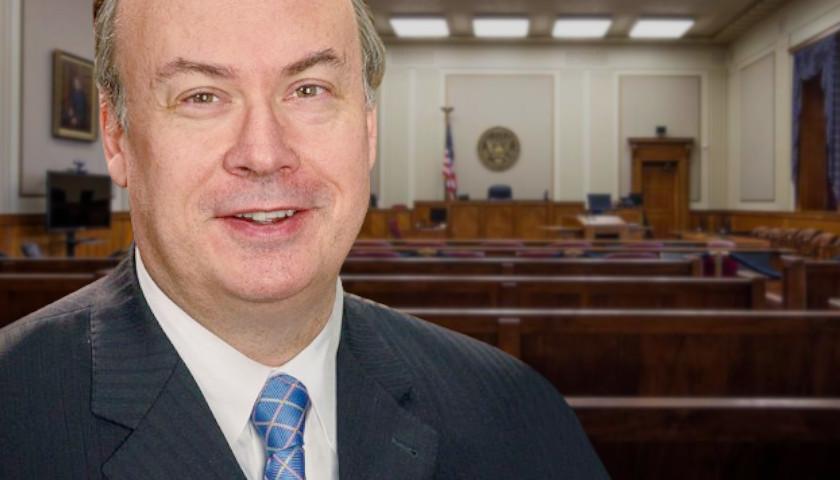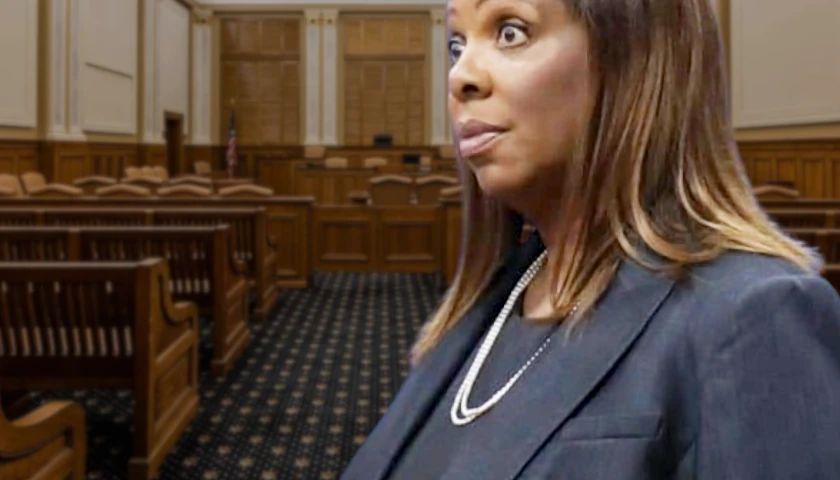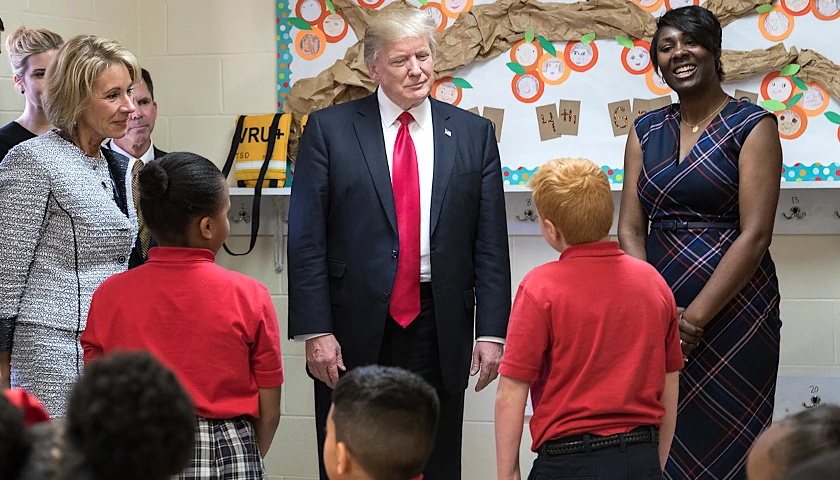The Arizona State Senate passed more legislation Tuesday to strengthen Arizona’s elections, starting with House Concurrent Resolution (HCR) 2033, sponsored by State Representative Austin Smith (R-Suprise).
“Thank you to the @AZSenateGOP for voting out HCR2033. A bigger thank you to all the grassroots activists who worked so hard to make this happen. Very grateful for you all,” Smith tweeted. “This constitutional referral to protect our party primaries and girding us against radical experimental election systems that disenfranchise voters such as ‘ranked choice voting.'”
Thank you to the @AZSenateGOP for voting out HCR2033. A bigger thank you to all the grassroots activists who worked so hard to make this happen. Very grateful for you all.
This constitutional referral to protect our party primaries and girding us against radical experimental… pic.twitter.com/fTOuQ2THt6
— AZ State Rep. Austin Smith (@azaustinsmith) March 28, 2023
In Arizona, when the legislature passes a concurrent resolution from either the House or Senate, it does not go to the Governor for approval. Instead, the resolution aims to amend the state constitution and must be approved by voters via a ballot measure. Now that HCR 2033 has passed both houses, Arizonans will decide if they want it to go into effect during the 2024 election.
The resolution specifically targets primary elections and how they can operate. Should it become law, it would ensure that people of a particular political party only vote for candidates representing that party.
The resolution would ban fully open primaries in the state. An open primary occurs when people of any political party can vote in either party’s primaries. Currently, Arizona has semi-open primaries, where people who do not identify with either of the major parties can choose which primary they want to vote in.
This resolution would not prevent this; it would just ensure Democrats are not voting in the Republican primary and vice-versa. Additionally, the resolution states that any primary election policy enacted by the State Legislature supersedes any other charter, law, ordinance, rule, or resolution by a municipality that contradicts the policy.
However, the resolution was not without its opponents. State Senator Priya Sundareshan (D-Tucson) argued it usurps local governments’ authority and ability to participate in “the laboratories of Democracy” during future elections. Nonetheless, the opposition was not enough to kill HCR 2033 as it passed along party lines.
As reported by Axios, the resolution may have some competition in 2024, as a group called Save Democracy AZ may be pushing for a ballot measure that would allow for open primaries and ranked-choice voting (RVC) in Arizona. In the 2022 election, Nevada voters approved a similar measure that drastically changed how voting will work in the state.
However, state GOP legislators are adamantly opposed to RVC, arguing it would “muddy the waters” of Arizona’s elections. State Senator Anthony Kern (R-Glendale) has a bill sitting in the House prohibiting the practice from being implemented.
Moreover, the Senate also passed Senate Bill (SB) 1324, sponsored by State Senator Ken Bennett (R-Prescott), relating to ballot images and election transparency. Should it become law, it would require that all county recorders provide the Secretary of State (SOS) a full list of people who voted in the election, including their name, address, and voting method, all ballot images, and the cast vote record.
The SOS would then post all this information in an “election portal,” which the public could access through an application. Misusing the information in the portal would result in a class 5 felony. Additionally, the bill stipulates that no “personal identifying information” can be involved, which includes an individual’s date of birth, social security number, email address, and more.
With access to the ballot image and vote cast record, anyone could visibly see how a ballot was filled out and how the county recorded the vote. Neither of these reveals the name of the voter.
While speaking on the House Floor, Bennett said he had been working with legislators across the aisle to make the bill something everyone could be happy with. Despite these efforts, some Democrat lawmakers still said the bill needs more work before they would be willing to vote in its favor. The bill ultimately passed on party lines.
Senate Republicans are working to help the widespread lack of voter confidence while Democrats don’t seem to care about the weight of tens of thousands of Arizonans that say they don’t trust our elections.
SB 1324 would bring public verifiability to an election process. It… pic.twitter.com/H9SyAnPwoj
— AZSenateRepublicans (@AZSenateGOP) March 28, 2023
– – –
Neil Jones is a reporter for The Arizona Sun Times and The Star News Network. Follow Neil on Twitter. Email tips to [email protected].
Photo “People Voting” by liz west. CC BY 2.0.








